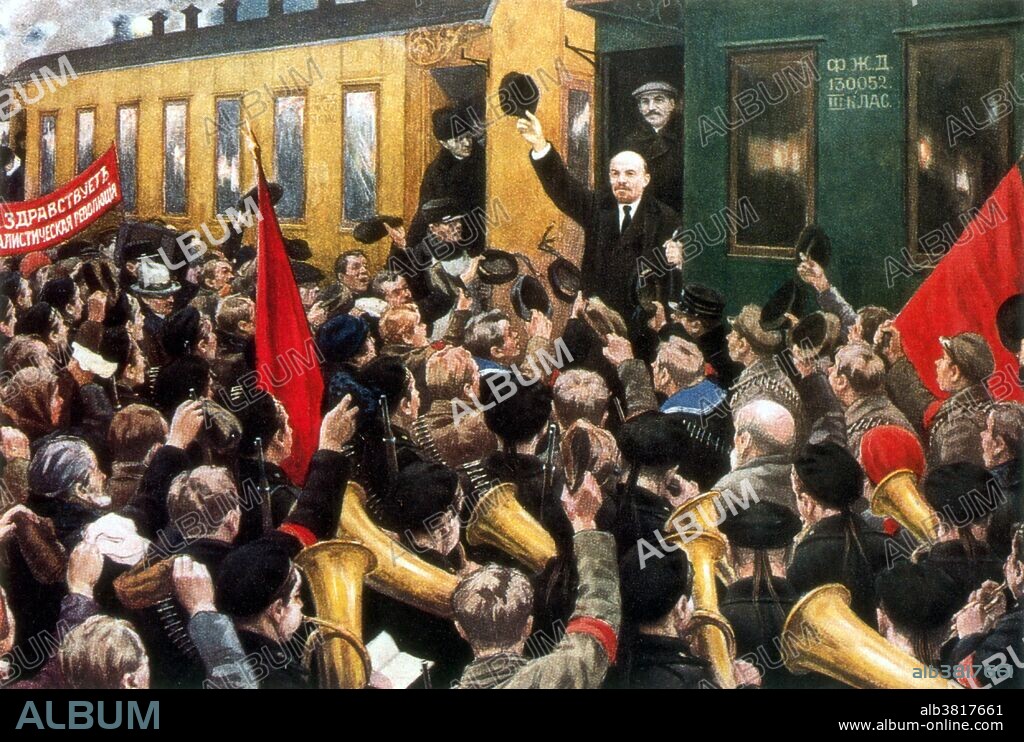alb3817661
Vladimir Lenin Returns from Exile, 1917

|
Zu einem anderen Lightbox hinzufügen |
|
Zu einem anderen Lightbox hinzufügen |



Haben Sie bereits ein Konto? Anmelden
Sie haben kein Konto? Registrieren
Dieses Bild kaufen.
Nutzung auswählen:

Titel:
Vladimir Lenin Returns from Exile, 1917
Untertitel:
Siehe automatische Übersetzung
Vladimir Ilyich Lenin (April 22, 1870 - January 21, 1924) was a Russian Marxist revolutionary, communist politician, Marxist theoretician, and first premier of the Soviet Union. In 1903 he formed the Bolsheviks and led them in the 1917 October Revolution, which established the Soviet Government. He formed the Comintern in 1919 and adopted the New Economic Policy after the Civil War had led to the virtual collapse of the Russian economy. He was a gifted, charismatic orator and his extensive theoretic and philosophical developments of Marxism produced Marxism-Leninism, the pragmatic Russian application of Marxism. He stressed bold, revolutionary action and insisted that a strong Communist party would be needed in a Marxist nation to direct the efforts of the workers. In May 1922, he suffered a stroke, which left him unable to speak for weeks. By August he resumed limited duties. In December 1922, he suffered a second stroke that partly paralyzed his right side. In March 1923, he suffered a third stroke. He was mute and bed-ridden, but remained the leader of the Communist Party. He died in 1924 at the age of 53. Scene from painting by M. Solokov
Bildnachweis:
Album / NYPL/Science Source
Freigaben (Releases):
Model: Nein - Eigentum: Nein
Rechtefragen?
Rechtefragen?
Bildgröße:
4500 x 3030 px | 39.0 MB
Druckgröße:
38.1 x 25.7 cm | 15.0 x 10.1 in (300 dpi)
Schlüsselwörter:
1910ER JAHRE • BERÜHMT • BERÜHMTE PERSÖNLICHKEIT • KOMMUNISMUS • KOMMUNISMUS: SOVIETUNION. • KOMMUNISTISCHE PARTEI • MANN • MARXISMUS • MARXISMUS-LENINISMUS • NOTABEL • OKTOBERREVOLUTION • PERSON • PERSöNLICHKEITEN • PERSÖNLICHKEITEN • PROMINENZ • REVOLUTIONAER • REVOLUTIONÄR • SOZIALDEMOKRATISCHE PARTEI • SOZIALISMUS • ST. PETERSBURG
 Pinterest
Pinterest Twitter
Twitter Facebook
Facebook Link kopieren
Link kopieren Email
Email
